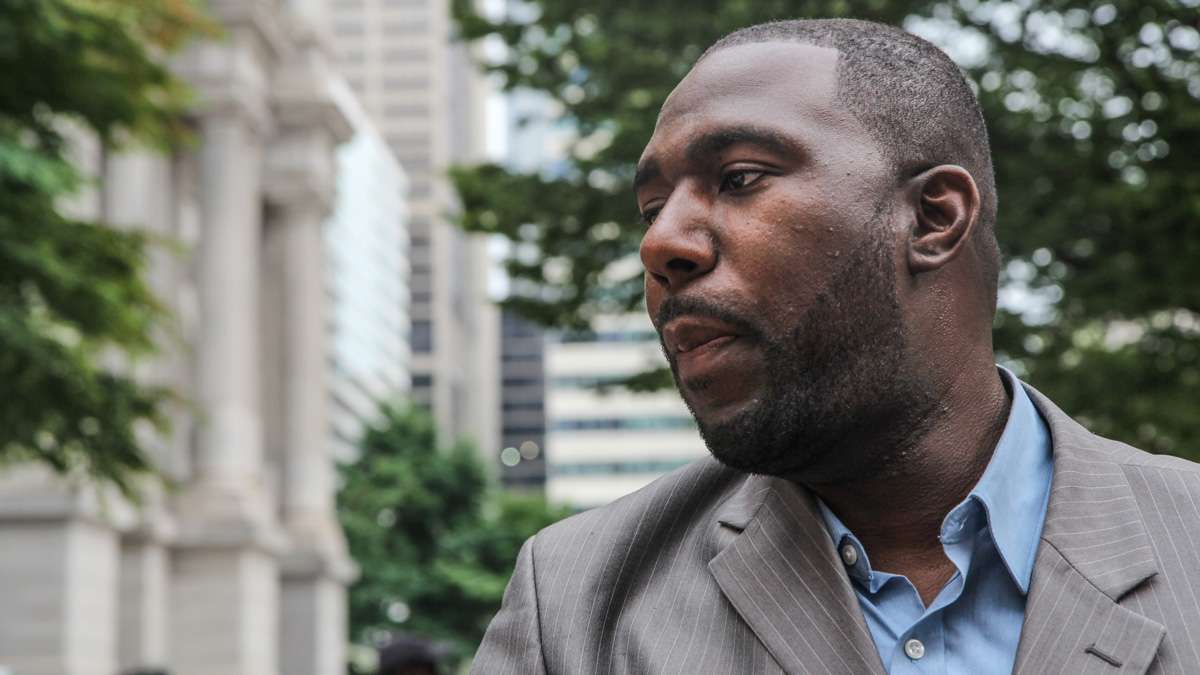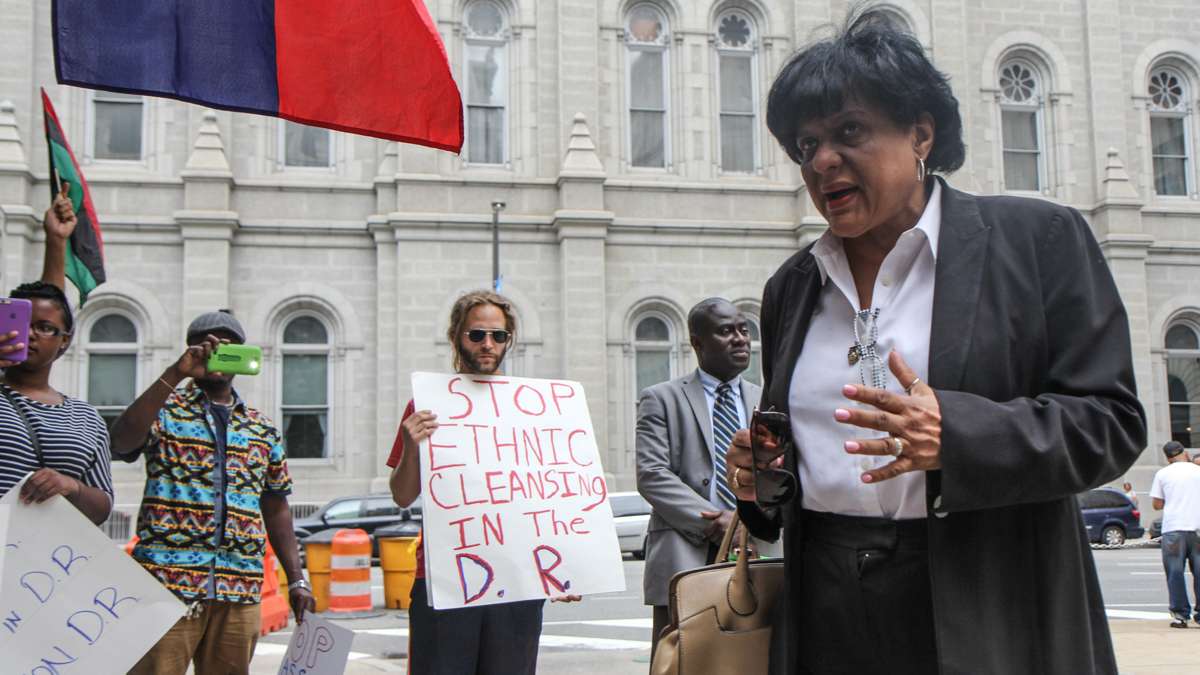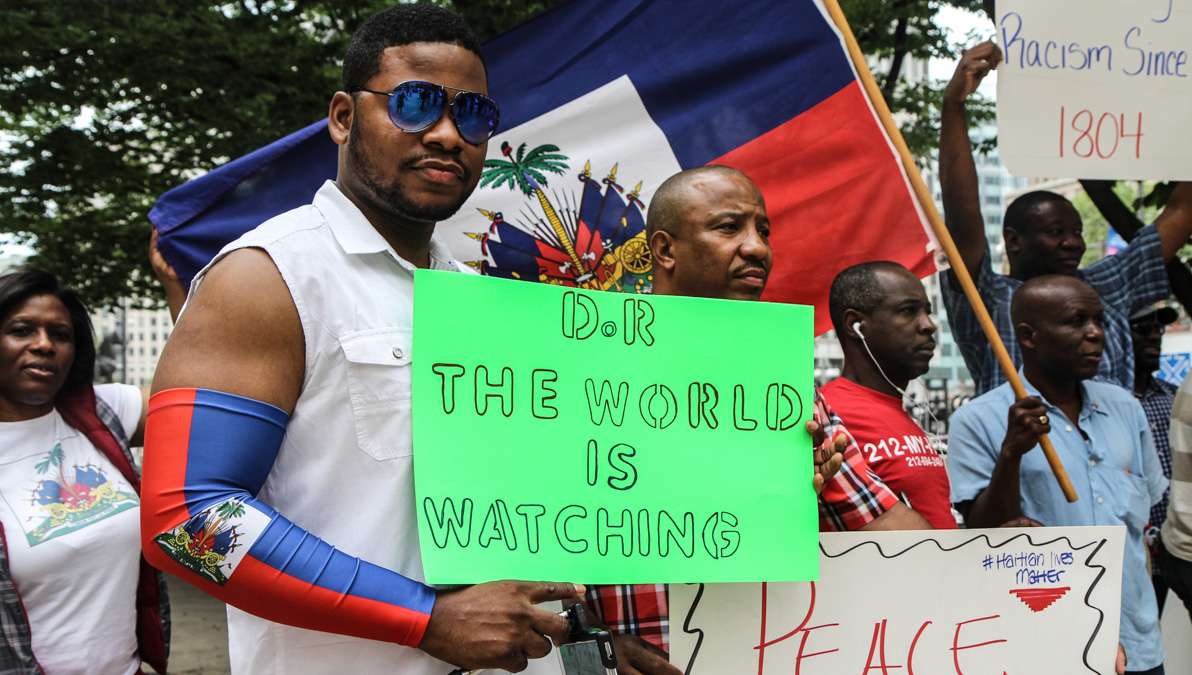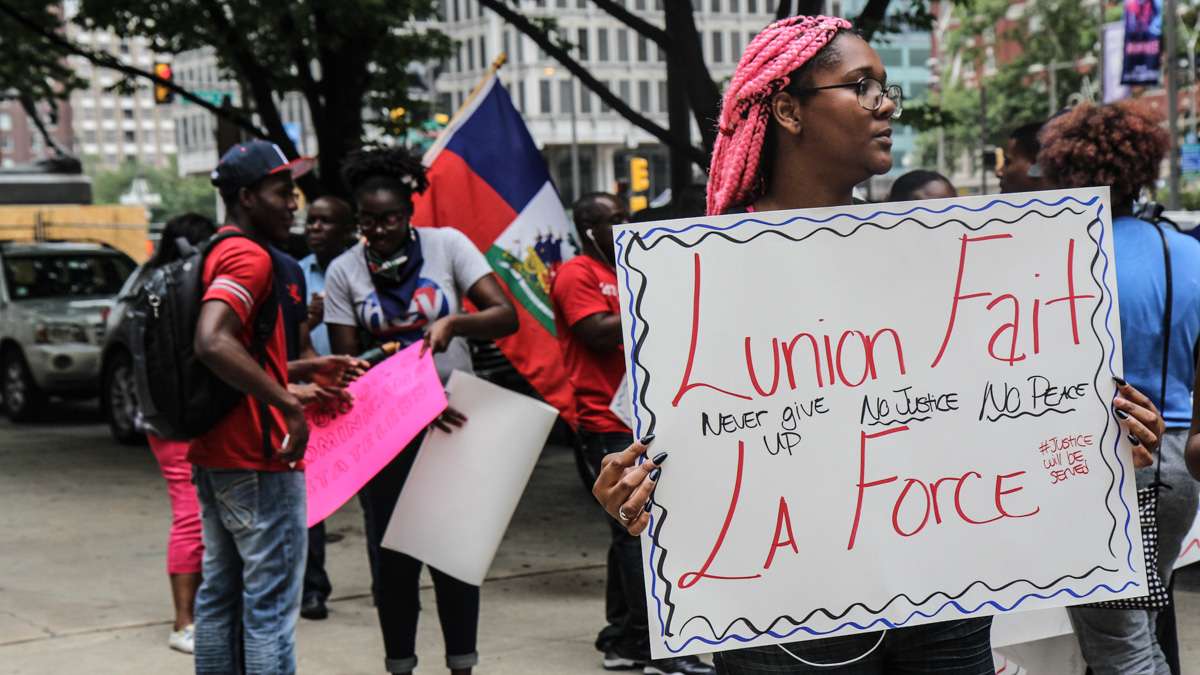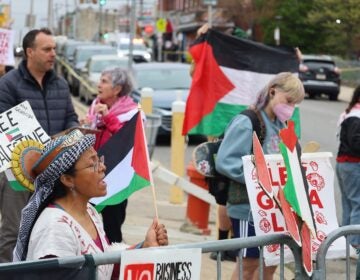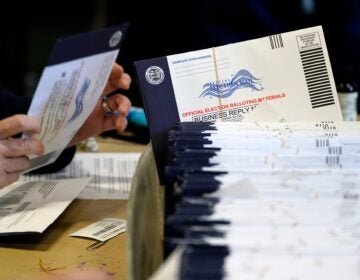Philly activists call attention to Haitians in danger of deportation [photos]
ListenHaitian immigrants in Philadelphia are among many across the United States protesting the deportation of thousands of Haitians from their homes in the Dominican Republic.
Some in danger of expulsion have lived and worked in the Dominican Republic for a lifetime; others are of Haitian descent.
But all have come under the strict new law that’s displacing Haitians who cannot prove they are in the island nation legally.
That exile has ignited an international call for the human rights of those caught in a cycle of displacement and poverty. And it’s prompted fears of a humanitarian crisis.
As the deportations have sent shock waves through Philadelphia’s Haitian community — home to about 11,000 immigrants — activist Numa St. Louis and other Caribbean and African American activist organizers have led street protests in Philadelphia to call attention to the conflict.
“The constitutional law that was passed by the Dominican Republic revokes people’s citizenship getting back to 1929,” said St. Louis. “So you have people that are well into their 80s and 90s that are subject to deportation. These people have no [Haitian] roots, no ties, no language and are subject to deportation based on that law.”
Most Haitians born and raised in the Dominican Republic have never been to neighboring Haiti, don’t speak Creole and see few possibilities of finding work across the border where poverty and unemployment rule. And getting legal documents in the Dominican Republic has been a difficult process, inaccessible to many, St. Louis said.
In June, the Dominican Republic deported more than 14,000 Haitians who could not produce the necessary papers. It seems a straightforward enough legal action, but nothing is ever that simple when it comes to immigration. That’s especially true among two nations that share not only the island of Hispaniola in the Caribbean, but also history of violence and exploitation.
Law leads to racial profiling
This latest development began two years ago, said Fernando Chang-Muy, a University of Pennsylvania professor of immigration, when Dominican authorities passed the law.
“The law says that individuals born in the Dominican Republic but who are of Haitian heritage will not be considered Dominican,” Chang-Muy said. “Some observers say that, first, this violates the principle of what we call ‘birthright citizens’; second, it creates a whole class of people who have no state to call their own; and, thirdly, it’s racial profiling.”
If Haiti refuses to accept the deportees as citizens and they cannot return to the Dominican Republic, they will become “refugees in orbit,” those who bounce from one place to another.
“That might cause you to come to the United States,” or to migrate to other neighboring countries, Chang-Muy said.
In Dominican history, 1929 marks the start of the brutal dictatorship of Rafael Leonidas Trujillo. Trujillo, assassinated in 1961, was known for ordering the of slaughter Haitian workers in what’s called the “Parsley Massacre.” Trujillo wanted to “Dominicanize the border” by eliminating darker-skinned people, usually identified as Haitians. As many as 5,000 may have perished in that massacre.
The tensions in the Dominican Republic sparked much conversation at a recent weekly soccer game in Wyncote, Pennsylvania, where St. Louis and a group of friends from different countries play regularly. Dominican accountant Ramiro Rosario said his father and uncle were victims of Trujillo’s political, not racial, persecution.
“If you were dark skinned, it didn’t matter where you came from,” said Rosario, speaking in Spanish. “After they killed you, they asked, ‘Are you Haitian or Dominican?’ But it was too late. You were dead!”
Nevertheless, Rosario argued that the recent legislation is a way for the Dominican Republic to bring some economic relief to the country.
“Haitian hands practically lead the labor force in the agriculture and construction industries of Santo Domingo,” he said. “But like other countries, there’s an attempt to fix the immigration issues because the country is poor and cannot afford the health and education costs of our Haitian brothers.”
For Numa St Louis, the problem is uprooting people who never lived in Haiti.
“I completely understand the rule of law and the Dominican Republic is a sovereign country … they should be able to implement immigration laws,” he said. “What we are asking is they should be able to implement it in a humane way.”
In the international arena, the Organization of American States and other agencies have been documenting the displacement of Haitians. On July 14, a group of 109 American law professors, including the University of Pennsylvania’s Chang-Muy, wrote to President Obama demanding he intervene in the Dominican Republic before the situation becomes a larger crisis.
WHYY is your source for fact-based, in-depth journalism and information. As a nonprofit organization, we rely on financial support from readers like you. Please give today.


